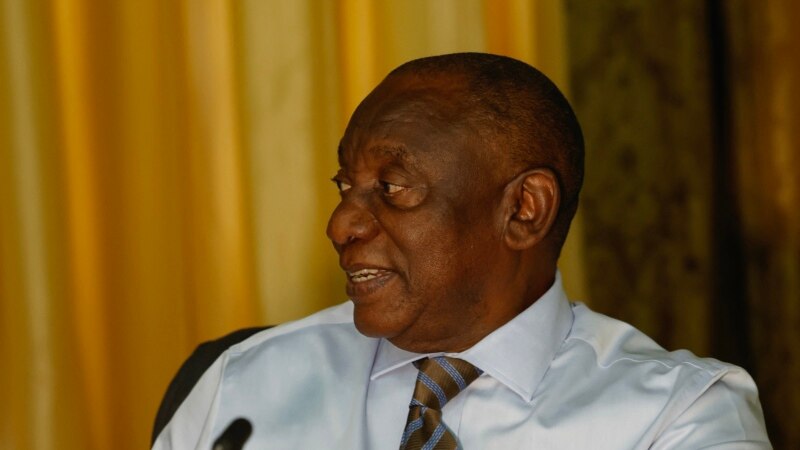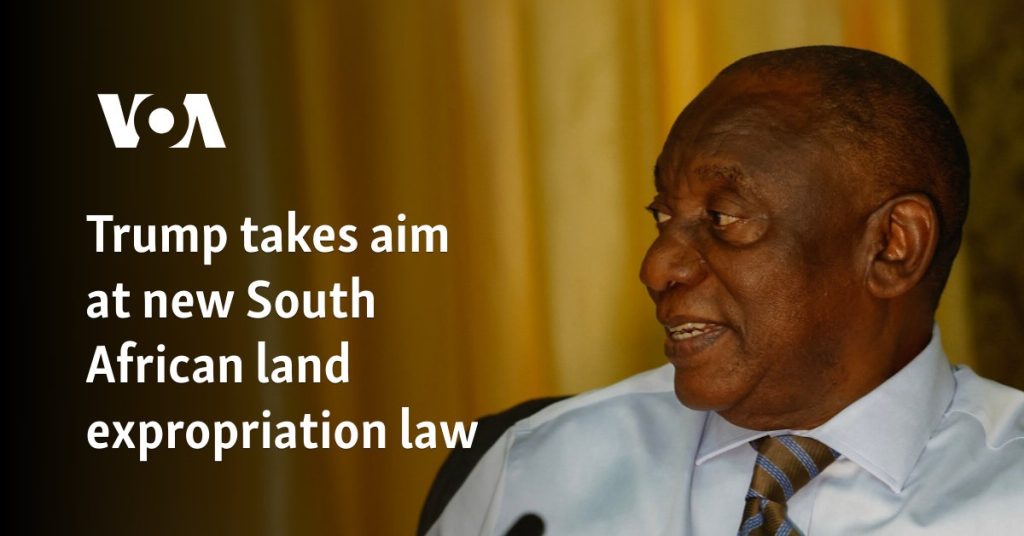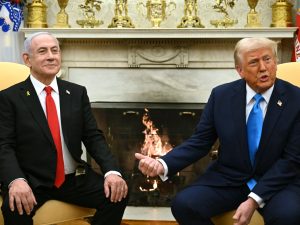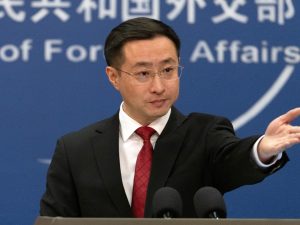
President Donald Trump has taken aim at a new South African law meant to address the nation’s apartheid legacy of racially unequal land distribution, threatening to withdraw funding, including to the world’s largest HIV treatment program.
Africa observers told VOA on Tuesday that some members of the U.S. Congress have jumped on this grievance to “upend the status quo in U.S.-South Africa relations as a response.”
Trump fired the first volley Sunday night, in a post on his social media site.
“South Africa is confiscating land, and treating certain classes of people VERY BADLY,” Trump wrote. He continued to describe the situation as “a massive Human Rights VIOLATION, at a minimum.”
South African politicians — both the supporters and the opponents of the newly inked Expropriation Act that Trump was referring to — quickly fired back at his description of the new law, which repeals apartheid-era legislation to align land distribution with the nation’s progressive constitution.
Under the apartheid system, laws such as the 1913 Natives Land Act severely restricted Black land ownership. Other now-defunct laws determined where members of the nation’s Black majority could travel or live, what public facilities they could use, and whom they could marry.
Apartheid also denied full citizenship rights to Black people until its fall in the early 1990s. Black people first gained the right to vote in the 1994 elections that ushered in democratic rule.
“South Africa, like the United States of America and other countries, has always had expropriation laws that balance the need for public usage of land and the protection of rights of property owners,” South African President Cyril Ramaphosa said in a statement this week. “We look forward to engaging with the Trump administration over our land reform policy and issues of bilateral interest. We are certain that out of those engagements, we will share a better and common understanding over these matters.”
The new law allows for limited cases of land expropriation without compensation, and that clause alone provoked years of public consultations and debate in South African parliament and civil society before it was adopted recently by the nation’s newly sworn-in coalition government.
In her article on the website The Conversation, law professor Zsa-Zsa Temmers Boggenpoel of Stellenbosch University explained the move as “a potential tool to reduce land inequality.”
“This has become a matter of increasing urgency,” she wrote. “South Africans have expressed impatience with the slow pace of land reform.”
A government land audit in 2017 found that 72% of the country’s farms and agricultural holdings were white-owned.
“I am not convinced that the act, in its current form, is the silver bullet to effect large-scale land reform — at least not the type of radical land reform that South Africa urgently needs,” Boggenpoel wrote. “Understandably, the act will have a severe impact on property rights. But it still substantially protects landowners affected by expropriation. Only in very limited cases would they not be compensated.”
South Africa’s opposition parties stood against the new law.
After the bill was signed last month, opposition party ActionSA , which vowed to pursue legal action, said in a statement, “While other parties assert that this bill does not compromise the ‘willing buyer, willing seller doctrine,’ it ultimately allows the government to unilaterally set the price if an agreement cannot be reached.”
The center-right Democratic Alliance party not only strenuously opposed the new law — along with ActionSA and the pro-Afrikaner Freedom Front Plus party — it also objected to Trump’s characterization, calling it “unfortunate.”
“It would be a tragedy if this funding were terminated because of a misunderstanding of the facts,” the party said in a statement. It continued: “It is not true that the Act allows land to be seized by the state arbitrarily, and it does require fair compensation for legitimate expropriations in terms of Section 25 of the Constitution.”
But these nuances may not be seized upon by the U.S. Congress, which has bristled at some of Pretoria’s moves — not least, the nation’s decision to pursue a genocide case against Israel at the U.N.’s highest court, said Michael Walsh, an Africa analyst at the Foreign Policy Research Institute,
The U.S. strenuously opposed South Africa’s petition to the court in late 2023, with the White House telling VOA the case was “without merit.”
“My key takeaway was [Trump’s] reference to massive human rights violations,” Walsh told VOA. “That terminology will play into the hands of those interest groups who have been pushing for Magnitsky sanctions to be imposed on ANC and EFF officials prior to the G20 Johannesburg Summit,” he added, referring to the African National Congress, Ramaphosa’s party, and the far-left Economic Freedom Fighters.
The 2012 Magnitsky Act allows the U.S. to impose sanctions on human rights violators.
“Many South African experts have assumed that any Magnitsky sanctions would be based on acts of corruption,” Walsh said. “However, members of Congress are considering Magnitsky sanctions on the grounds of human rights violations as well.”
This all sets up the scene, he said, for a diplomatic showdown when world leaders converge in Johannesburg in November for the summit of G20 nations.
Host nation South Africa has set the agenda for that meeting of the world’s top 20 economies to include two issues that don’t jibe with Trump’s isolationist, pro-energy exploration, America-first approach: mobilizing climate financing and increasing debt relief for developing countries.









One Response
trump news